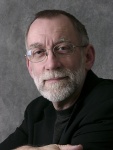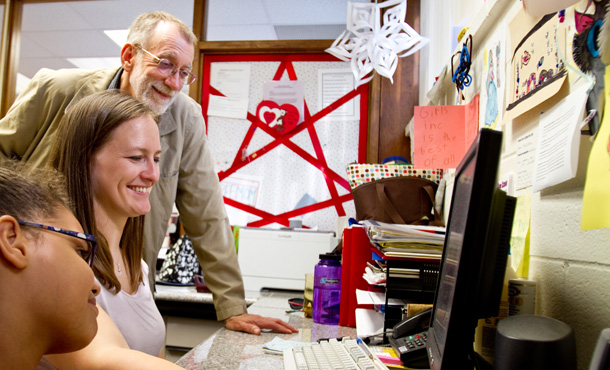The Center for Justice and Peacebuilding (CJP) at Eastern Mennonite University will offer an online course that will explore the principles, values and challenges of restorative justice.
“Restorative justice has come an incredible distance since the 1970s,” said Howard Zehr, co-founder of CJP, who is commonly referred to as the grandfather of restorative justice. “We need to be critical advocates and be aware of the challenges and dangers of restorative justice. Part of our goal is revision of restorative justice so it stays true to its principals and guides us into new applications.”
The course is intended for those who have some background in restorative justice. Through reading, discussion and real-time conversations with leading practitioners and thinkers, participants will explore the principles and values of restorative justice, including the challenges, dangers and pitfalls of it when put into practice.
The course will meet online each Wednesday from 4 – 6 p.m. EST beginning Feb. 1, 2012, and ending April 25, 2012, and will require completion of assignments between class meetings.
Critical Issues in Restorative Justice (Ed. Barb Toews and Zehr) will be a primary text of the course.
About the professors
Howard Zehr, professor of restorative justice at Eastern Mennonite University, began as a practitioner and theorist in restorative justice in the late 1970s at the foundational stage of the field.
Zehr was an early advocate of making the needs of victims central to the practice of restorative justice. A core theme in his work is respect for the dignity of all peoples.
He has led hundreds of events in 25 countries and 35 states, including trainings and consultations on restorative justice, victim-offender conferencing, judicial reform and other criminal justice matters. Zehr is the author of Changing Lenses: A New Focus for Crime and Justice; The Little Book of Restorative Justice; The Little Book of Contemplative Photography; Doing Life: Reflections of Men and Women Serving Life Sentences and more.
Brenda Waugh is an attorney and mediator with over 25 years of experience.
Waugh graduated from West Virginia University Law School in 1987 and earned a master’s degree in conflict resolution from Eastern Mennonite University in 2009.
She is licensed to practice law in West Virginia and the District of Columbia and is a certified mediator in Virginia and in West Virginia. Currently in private practice, she previously practiced law as an assistant prosecuting attorney and as a legal services lawyer.
Waugh served as counsel to the West Virginia Legislature and as the clerk to the committee to develop family court rules with the West Virginia Supreme Court of Appeals. She served as the first chairperson for the West Virginia State Bar Commission on Children and the Law and was appointed by the Supreme Court to serve on the several committees.
Waugh has published articles in the Yale Journal of Law and Feminism and the Washington University School of Law Journal of Law and Public Policy. Her teaching experiences include West Virginia University School of Law and Eastern Mennonite University.
For more information or to apply for the course contact Janelle Myers-Benner at 540-432-4986 or bennerj@emu.edu.
